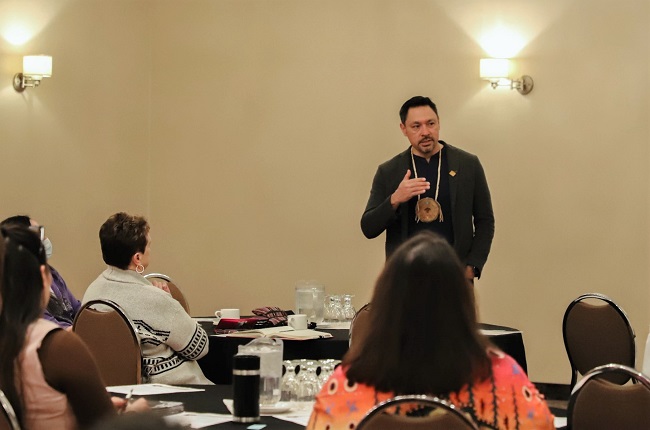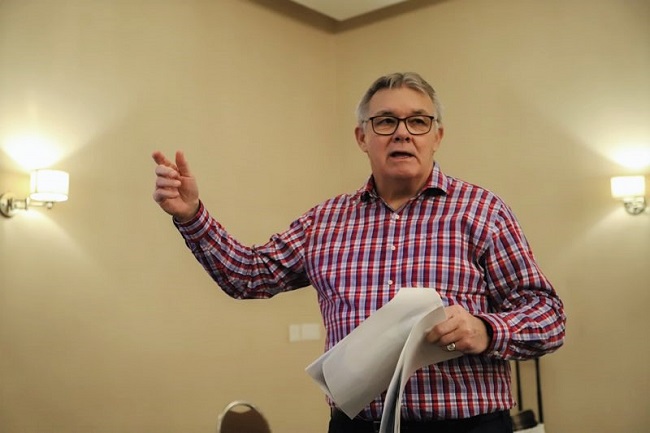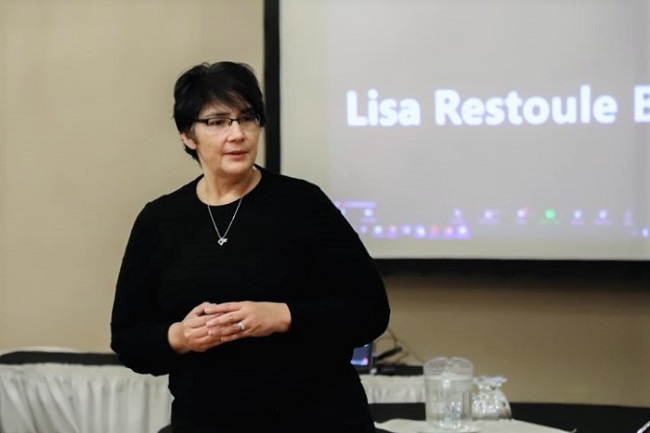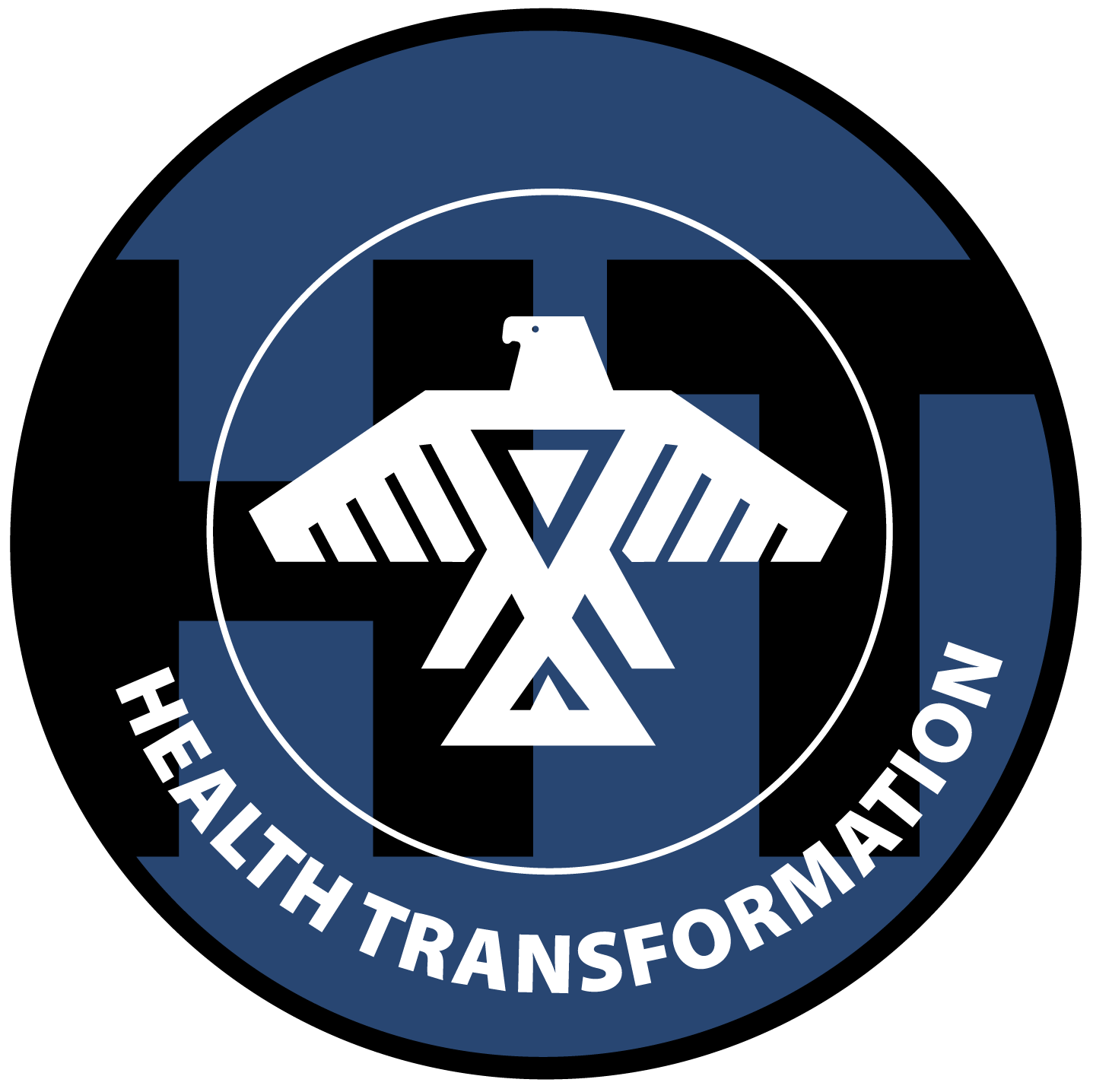By Jesse Johnson
NORTH BAY – The Anishinabek Nation’s Health Transformation Team kicked off 2023 with a hybrid Working Group meeting on January 24 and 25 at the Best Western Hotel and Conference Centre in North Bay, Ont.
Anishinabek Nation Advisory Councils members Elders Leroy Dolson and Evelyn Stone provided the opening prayers. Lake Huron Regional Deputy Grand Council Chief Travis Boissoneau provided opening remarks, noting that he “looks forward to delivering a better health system that integrates all services more effectively and efficiently under First Nation governance.”

Participants watched videos of the B.C. Health Directors Association in order to get a better idea of what could be accomplished in Ontario.
John Scherebnyj, Health Transformation Fiscal Analyst, presented on Transformation versus Devolution and how important it is to know the difference between the two. He also shared a sample of a draft regional health authority office budget to give an idea of how the finances could be laid out.
John Scherebnyj, Health Transformation Fiscal Analyst, presented on Transformation versus Devolution at the Working Group meeting.
“There was a lot to discuss about the draft regional health authority office budget. I think this gave everyone an idea of what the finances could look like in the future. I have to remind people that this is just a draft, so there are a lot of things that will change as we move forward,” said Scherebnyj.

the Working Group meeting.
A review on the Chiefs Committee on Health and the Anishinabek Advisory Committee on Health Terms of References were provided and discussions followed in regards to the process, if these committee positions are filled, and if these groups are currently active.
Loretta Nootchtai, Health Transformation Project Manager, presented the topic of baseline health indicators with the Working Group members and solicited feedback on what those indicators could potentially be. Some members identified diabetes, obesity, and kidney problems (dialysis) as indicators.
Loretta Nootchtai, Health Transformation Project Manager, presented the topic of baseline health indicators with the Working Group members.
“We need baseline health indicators to measure our progress over the years to come. This will help us identify which areas within community health are improving with the new system change,” said Nootchtai.
The Team is looking to hold more engagement sessions with interested Chiefs and Councils during their first phase of introductions. Also, health and finance experts are encouraged to join and attend upcoming Working Group meetings.

“We need more participation from other First Nation communities within the territory, so that they have a better understanding on how we can move forward on health transformation,” said Janine Pitawanakwat of Wiikwemkoong Unceded Territory. “All of our First Nations need to take back control of our health and wellness. It’s going to take a lot of work, but it is necessary work. It’s imperative to have this working group.”
The Anishinabek Nation Health Transformation Working Group, comprised of various member First Nations representatives and healthcare professionals, regularly provides guidance, leadership, and direction to the Anishinabek Nation’s Health Transformation Team. The Working Group contributes to the gathering of community-level feedback on the draft plans and recommendations that will capture concerns and aspirations; involve all citizens in the planning and designing of a holistic system that will ensure ideas and concerns are reflected; and, include direction from leadership, management, front-line workers, and all citizens living on and off-reserve.
For more information on Health Transformation, visit www.health-transformation.ca. If you are from one of the 39 Anishinabek Nation member First Nations and would like to join the Anishinabek Nation’s Health Transformation Working Group, please contact Lisa Restoule-Brazier via e-mail: lisa.restoule@anishinabek.ca.
